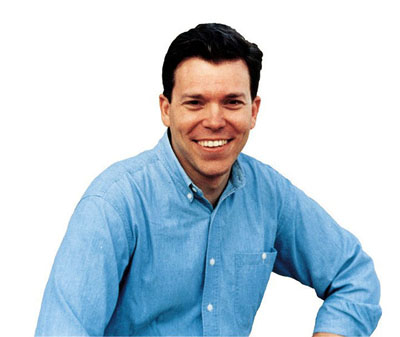
(RNS2-OCT15) To Bruce Feiler, author of “Abraham: A Journey to the Heart of Three Faiths,” the patriarch at the core of Judaism, Christianity and Islam may be a means of bringing them together. See RNS-ABRAHAM-BOOK, transmitted Oct. 18.
(RNS) Moses, not Jesus, is the religious figure who has most influenced American history, says journalist Bruce Feiler.
He makes this claim in “America’s Prophet: Moses and the American Story.” In addition to being a well-known inspiration for the abolition and civil rights movements, Moses was quoted by the Pilgrims on the Mayflower and the inscription on the Liberty Bell. Such Mosaic themes as receiving the law in a covenant with God and leading an oppressed people to freedom resonate to this day, says Feiler.
The author of “Walking the Bible,” “Abraham” and “Where God Was Born” said his investigation of Moses’ relationship with America started with a family trip, constantly surprised him, and led to renewed hope for American unity.
This interview has been edited for length and clarity.
Q: What piqued your interest in Moses?
A: I boarded the Mayflower II (in Massachusetts) and a re-enactor was reading the Bible. It was the Exodus. Then, in Savannah, at my childhood synagogue, there was a letter from George Washington on the wall — “the same God who freed the Israelites from Egypt helped us win the Revolution.” Then I went to Philadelphia and there was a quote from Moses on the Liberty Bell. So I kept finding this story over and over in America and I formed a question — if Moses was important to American history, can he un-split America. Is Moses a common figure that can unite these warring factions in America?
Q: Why was Moses more influential than Jesus in U.S. history?
A: Obviously, Jesus was important to American history. The country was 100 percent Christian at its founding and is three quarters Christian today, but the themes of Jesus’ life — creating God’s kingdom, poverty alleviation, spreading the good work of the Gospel — wouldn’t make a list of great American characteristics. The themes of Moses’ life — standing up to a greater authority, leading a people out of oppression into the free world, building a promised land — are some of the defining characteristics of America.
Q: What surprised you about this journey?
A: Two thirds of the eulogies on Washington’s death in 1789 compared him to Moses. In March, 2007, Barack Obama announcing his candidacy for president says thank you to the Moses generation, in the civil rights years, and “I’m going to be Joshua.” George W. Bush told me he was inspired by Moses. Bill Clinton talked about a new covenant. The white Protestants — the Pilgrims — introduced Moses into American life, but later when the Jews or Catholics showed up, they latched on to the same story, later blacks and gays and women used the same story — oppressed people seeking a new and better life in America.
Q: Why do you say it is important to see Moses as a uniting figure?
A: I had spent 10 years traveling across the Middle East, looking at the connection between religion and political battles of the day. Then I came home and I found that those battles, the front line of which used to be in the Middle East, had moved back home. And Americans were involved in this debate — and the buzz words were left and right, believer and nonbeliever, red and blue. It seemed that the battle over God had come back to America.
Q: How has faith affected your personal life?
A: Three days ago, one of my daughters asked, “Does God listen to everything I say?” I thought, “You should be prepared to answer this question and give her an answer that’s true for her and not a different answer when she grows older.” Where I personally am is that I welcome in my life the conversation about where God fits into my home life and what role he can play in the world, but I find that conversation to be much more fruitful outside the walls of any religious institution.
Q: Do you belong to a particular synagogue?
A: Yes, we’re very active in the Brooklyn Heights Synagogue and my daughters are in pre-school there.




